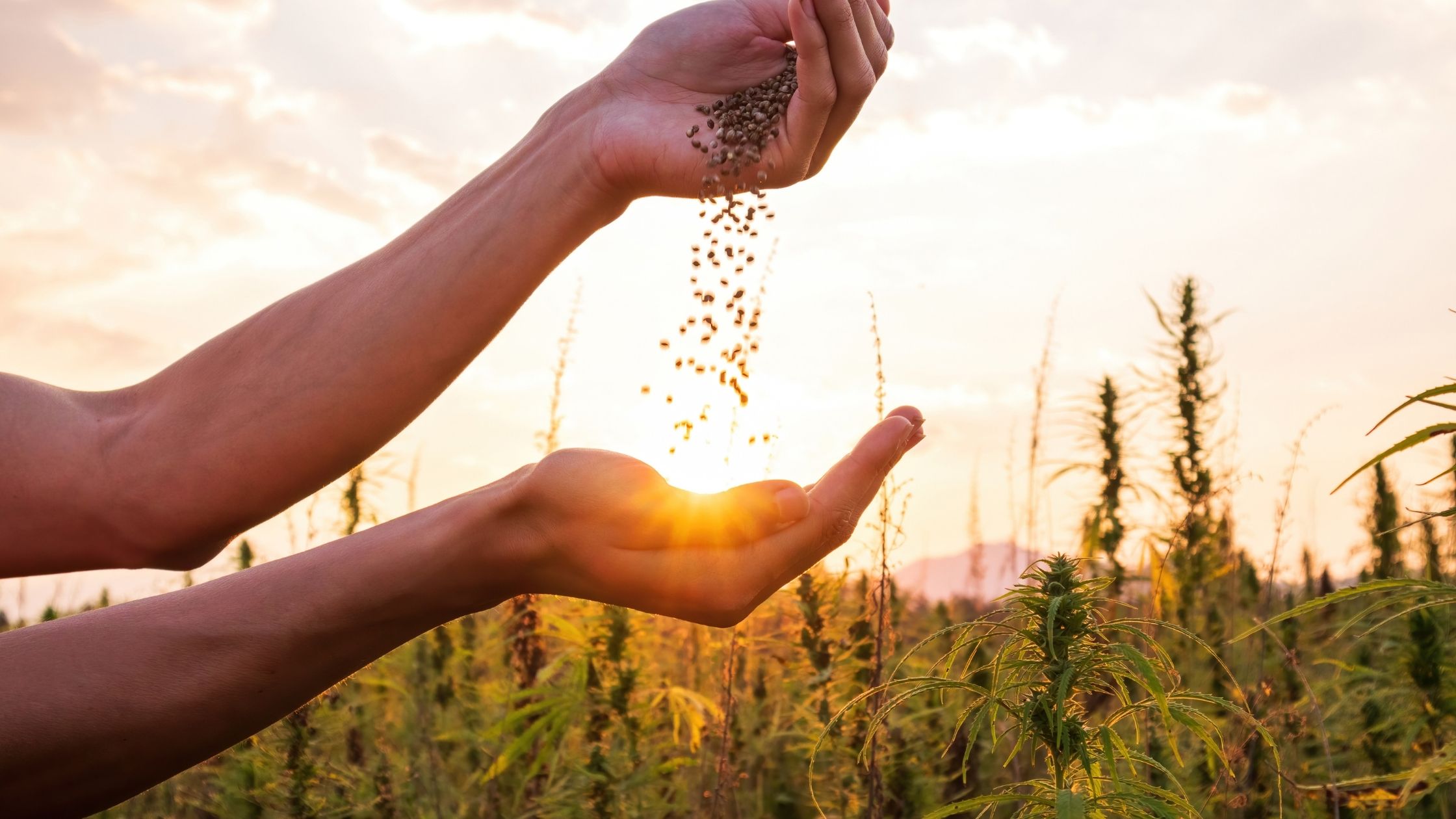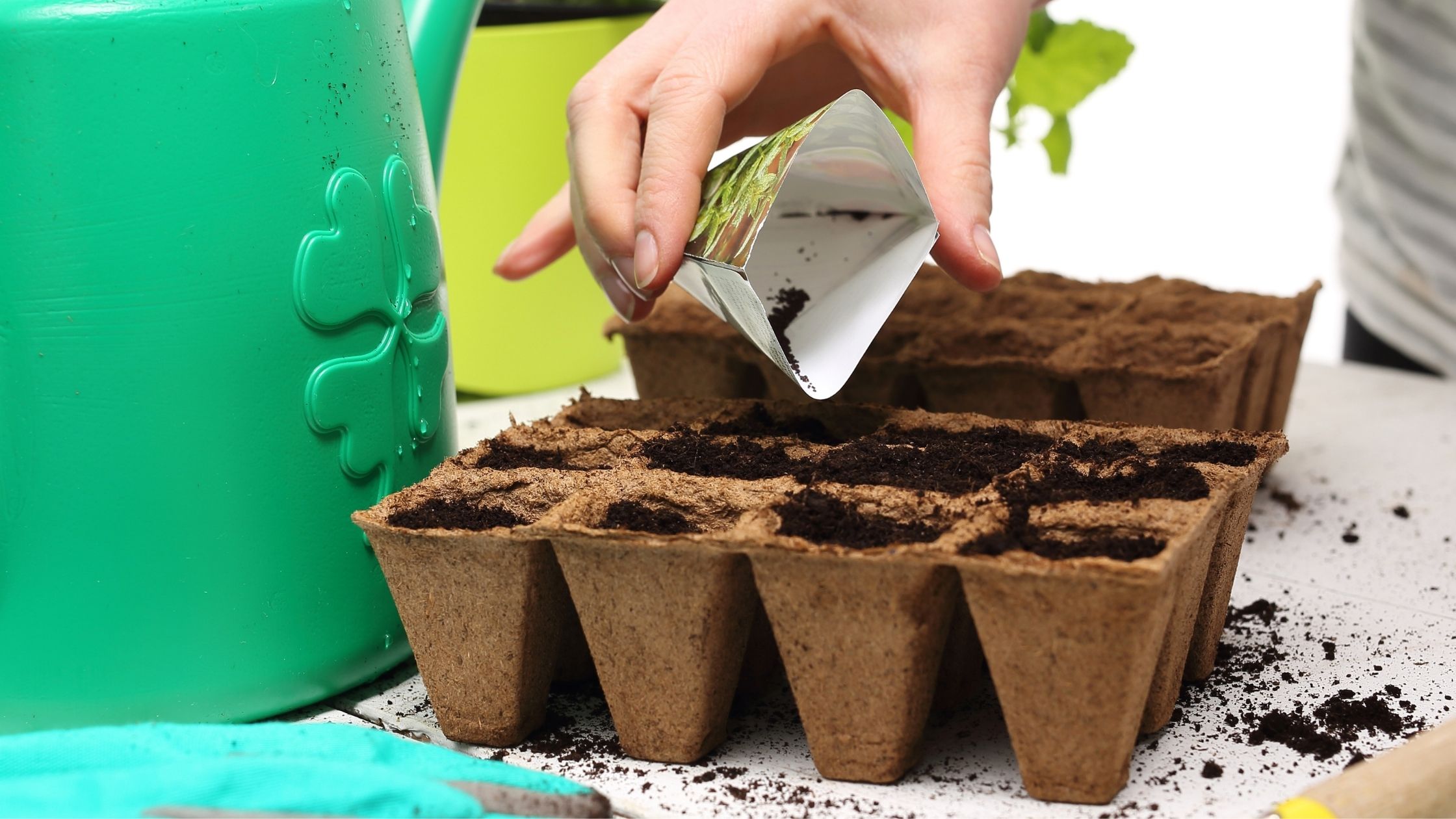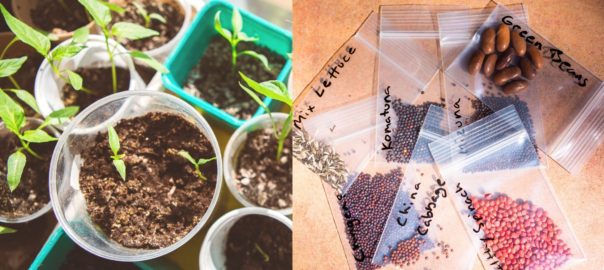Seeds vs. Plants
Spring is just around the corner. Many people start thinking about planting a garden. Dreaming about fragrant, flavorful tomatoes, mouthwateringly delicious sweet corn, an abundance of greens and herbs, and more, all from their garden. For some, this thought process is accompanied by doodlings of garden plans, frantic searchings for last year's crop rotation chart, or just dog-earing a few pages in the latest garden supply catalog.
Some folks will buy seeds. Some will buy plants. But are they, and you, thinking about the environmental and biological impact of the plants? Are you considering non-genetically modified (GMO-free) plants and seeds? If not, it's time to consider making the switch. Yes, GMO-free can be more expensive. However, it comes with some important benefits.
Understanding the Safe Seed Pledge
But first I'd like to clarify. While organic seeds are great, in some cases, depending on the crop, not all crops require them. What is of vital importance is the use of non-genetically modified seeds. In order to support a move away from GMOs, more companies are signing the Safe Seed Pledge. Created in 1999 it was started as a way for companies to share their position when it comes to genetically modified seeds. Companies who have signed the pledge, and there are over 70 at this point, pledge that their seeds are free of genetic modification. Here are just a few companies you can buy from who have all signed the pledge:
- Horizon Herbs
- Baker Creek Heirloom Seeds
- Hudson Valley Seed Library
- D. Landreth Seed Company
- High Mowing Organic Seeds
- Uprising Seeds
- Fedco Seeds
- Johnny's Selected Seeds
- Turtle Tree Seed
- Sow Right Seed
- American Meadows
- Family Farmers Seed Cooperative
Why Choose Safe Seeds
At a minimum, safe seeds from companies who have signed the pledge should be what you're looking for when choosing seeds. Here's why:
- Seeds from genetically modified crops are often heavily sprayed with pesticides to keep down the weed population. This pesticide residue has a very sharp impact on the environment. Increased pesticide use appears to be reducing butterfly populations. It can also pollute the water and causes birth defects in water animals such as frogs and fish.
- The most common pesticide ingredient, glyphosate, is a chelating agent and binds with nutrients from the soil, effectively blocking them from the plants. With no nutrient uptake, that means less nutrition in your diet.
- New studies are showing a significant impact on human health and changes to DNA from exposure to pesticides.
- Seed crops spend more time in the ground than food crops, this increases the amount of pesticide potentially taken up into the seed and then passed on to you through the food grown from those seeds.
- Non-GMO crops and especially organic crops are often grown in healthier soil, creating a healthier end product.
- According to information found from the Institute for Responsible Technology, there are studies that show that animals ingesting GMO diets have organ damage and gastrointestinal issues as well as accelerated aging and infertility.
Starting Your Garden
Starting vegetables from seed doesn't require a lot of room. Essentially you need a container of some kind, good quality dirt, safe seeds, water, and sunlight. The truth, however, is that many of us feel nervous about how to start a vegetable or herb garden from seed. We've gotten so far away from that habit that it seems foreign and perhaps a bit overwhelming. The following are good resources to get you started:
- Starting Seeds: How to Grow Healthy, Productive Vegetables, Herbs, and Flowers from Seed (Storey Basics)
- The New Seed Starters Handbook (Rodale Organic Gardening)
- Square Foot Gardening: A New Way To Garden In Less Space With Less Work
- Seed Starting Kit – Basic kit includes a beautiful giftable box, drip tray, 12 cell seed tray, humidity dome, seed label sticks, 12 compressed soil pucks (just add water), easy to follow instructions, and an assortment of 6 medicinal and tea herb seeds, such as basil, dill, oregano, parsley, chives, and mustard
- 4-Tier Growing Rack - With Greenhouse cover. Measures 63" tall, 27" wide, and 19" deep
- LED Grow Light - This 36 Watt srew-in bulb provides sufficient light for small vegetables, peppers, and herbs also. Perfect for indoor and urban gardens, microgreen and wheatgrass flats.
While it's certainly easier to plant vegetables that are ready to go in the ground, you need to know what you're getting. If you're planning to start your garden from plants that someone else has sown from seed it would be a great idea to find out where the seeds originated and if they are part of the safe seed pledge program.
[expand title="Sources"]
Koller, VJ, et al. Cytotoxic and DNA-damaging properties of glyphosate and Roundup in human-derived buccal epithelial cells. Arch Toxicol. 2012 May;86(5):805-13
Mertens, M, et al. Glyphosate, a chelating agent—relevant for ecological risk assessment?. Environ Sci Pollut Res Int. 2018; 25(6): 5298–5317
"The ‘Doomsday’ Vault Where The World’S Seeds Are Kept Safe". TIME.Com, 2022, https://time.com/doomsday-vault/
"Glyphosate Binds Vital Nutrients | The Detox Project". The Detox Project, 2022, https://detoxproject.org/glyphosate/glyphosate-chelating-agent/.
"Home - Institute For Responsible Technology". Institute For Responsible Technology, 2022, https://www.responsibletechnology.org/.
[/expand]



Never thought much about this aspect of planting since
I do not plant food for us to eat from my own garden.
Interesting facts to know.
Awesome info as always – thanks for sharing
Jessica, there is GMO wheat however, supposedly, it isn’t part of the food chain. Yet.
And yes, GMO crops are causing a number of health issues including creating a negative effect on the health of gut flora.
The wheat that we currently have in the US is hybridized to be very high in gluten as well as to be shorter, more compact, etc.
I’m not sure why your sister didn’t have a problem in Italy, it may be a number of different factors, including the amount of pesticides.
Aren’t GMO crops also causing allergies and food intolerance in humans? I know I now have a gluten allergy that I hadn’t had when I was younger. I was told it had to do with genetically modified wheat. My sister who is also now gluten intolerant had no problem eating bread and pasta in Italy. Just curious if I’m correctly informed.
Love this and will be sharing! It’s so important to be aware of things like this! thanks and happy gardening!
Mira this is really scary! Thanks for this very informative post.
Good to know about the Safe Seed Pledge. We are moving toward mostly organic, locally-sourced foods so knowing that the Safe Seed Pledge helps us avoid GMO seeds is good information. Thanks!
This is a GREAT read, Mira. I don’t do a garden other than tomatoes, but I know people who do. I’ll share it with them. Thanks!